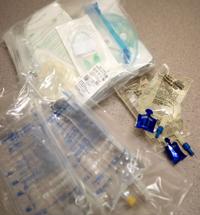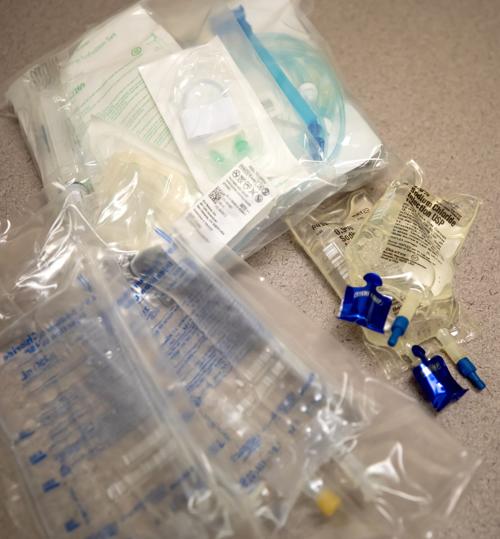Arizona residents who test positive for COVID-19 and might benefit from outpatient anti-viral treatment are not guaranteed the medication that could help them.
That’s because the drugs, while available with a prescription in pharmacies around the state or through referrals to some Pima County sites, are in extremely short supply.
“Your provider will determine if you qualify for these treatments,” said Dr. Marjorie Bessel, Banner Health’s chief medical officer, at a press conference Monday. “Due to limited supply, not all who qualify will receive them.”
The Arizona Department of Health Services has developed “antiviral prioritization tiering based on the supply in our state,” she said.
“Those who are 70 years of age or older or individuals with major immune suppression are top priority,” she said. “Outpatient treatment for those who test positive with COVID is also available, though supply of these treatments remains limited.”
These treatments include the monoclonal antibody IV therapy Sotrovimab and oral antivirals called Paxlovid and Molnupiravir. (For more information, visit the state’s anti-viral site at azdhs.gov/antivirals or learn more about treatment options at azdhs.gov/findtreatment.)
Bessel said about 90% of the cases Banner is seeing are now related to the variant omicron and that there is “almost nothing left of the delta variant or other variants in the state at this time.”
Hospitalizations for COVID-19 or suspected infections from the novel coronavirus have been rising since the beginning of the month and hospital workers are continuing to be sick, she said.
Staff illnesses have led Banner, the largest hospital network in Arizona, to temporarily close some of its urgent care centers around the state.
Bessel recommended people call ahead to see if an urgent care center is open, and also to make an appointment online first to limit wait times.
Banner Health currently reports that 83% of hospitalized COVID patients are unvaccinated or are partially vaccinated and 87% of Banner’s intensive care patients are unvaccinated or partially vaccinated.
“When positivity rates and case counts increase in our communities,” she said, “our team members are exposed and infected with the virus, too.”
Hospitalizations in Arizona are still very high and “continue to be of concern,” she said, as confirmed cases over the last three weeks have been at record highs.
“As a reminder, hospitalizations typically lag overall cases in the market by one to two weeks,” Bessel said. “For this reason, our forecasting models predict that hospitalizations from this most recent omicron surge will peak around mid-February.”
Banner isn’t the only hospital seeing spikes. Tucson Medical Center had 100 COVID-19 patients hospitalized on Monday, a jump from 60 a few days ago.





